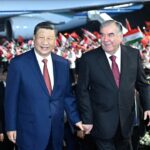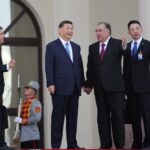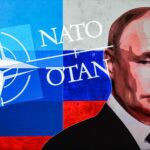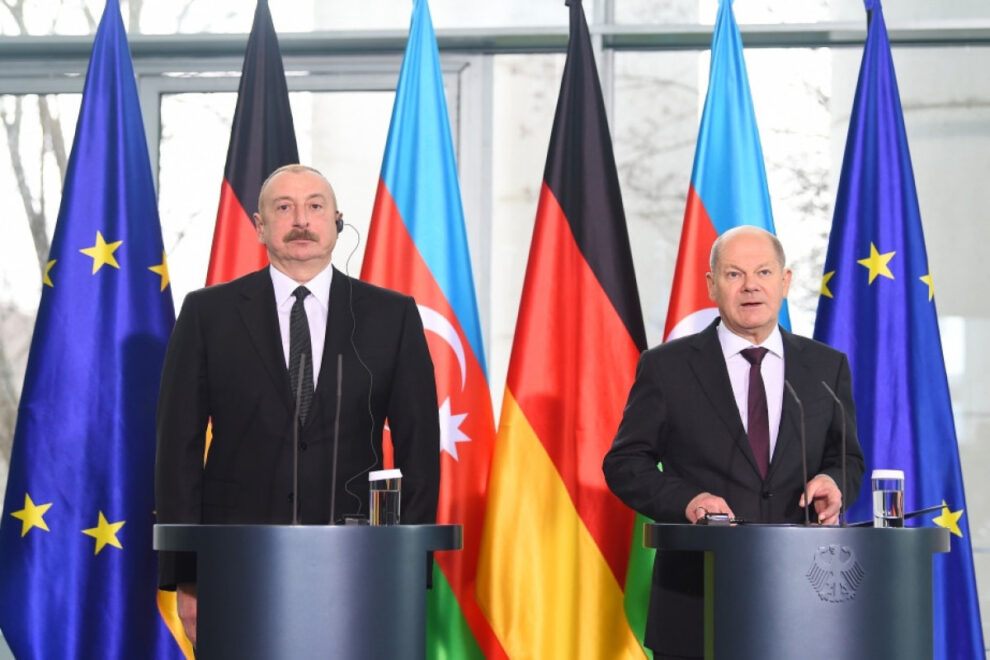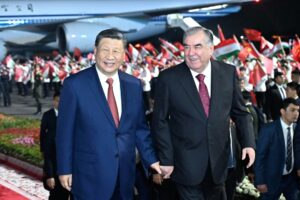During a meeting with Azerbaijan’s president on Tuesday, German Chancellor Olaf Scholz announced Berlin’s stance on the Armenian separatism in the Karabakh region of Azerbaijan.
Scholz said annexing the territory of another country is unacceptable under the international law and noted that Germany adheres to the relevant United Nations Charter.
“Let’s take Russia’s attempt to occupy a part of Ukraine. We will never allow that to happen; we disagree with that – the annexation of Zaporizhzhia, Luhansk, Kherson and other parts resulting from fake referendums, i.e., occupying them. We disagree with this, and we have clearly stated our position here that the UN Charter does not allow this; this action is against international law,” Chancellor Scholz said in a joint press briefing with President Aliyev in Berlin.
“At the same time, we clearly stated our position because we did not accept Nagorno-Karabakh as a republic, nor did we recognize Nagorno-Karabakh,” he added.
President Aliyev said four resolutions of the UN Security Council regarding the illegal occupation of Azerbaijani lands by Armenia were not implemented by Yerevan for 28 years, which ultimately led to a bloody war in South Caucasus.
“Azerbaijani lands were under Armenian occupation for nearly 30 years. As a result of this occupation and ethnic cleansing, nearly 20 percent of our lands were occupied, and a million Azerbaijanis were expelled from their native lands by Armenia and became refugees. Two and a half years ago, as a result of the Patriotic War, we restored our dignity, territorial integrity and rights on the battlefield, defeated Armenia and forced it to vacate our lands,” President Aliyev said.
He added that before the war there was a chance for diplomatic resolution and peace between the two countries, however, the leadership of Armenia blocked the path to peace with bellicose statements, including those claiming Karabakh as an Armenian territory.
“In 2019, the incumbent prime minister of Armenia said, ‘Karabakh is Armenia, full stop.’ That dealt the biggest blow to the peace talks. During the 44-day Patriotic War, we proved that Karabakh is Azerbaijan, exclamation mark! We put this exclamation mark in Shusha on November 8, 2020,” Aliyev said.
After the war of 2020, the Azerbaijani authorities voiced readiness and determination to launch negotiations with Armenia that would ultimately bring the long-awaited peace to the region. In February 2022, Baku submitted a peace proposal containing five principles as a basis for peace agreement with Armenia.
President Aliyev asserted that if Armenia does not miss this chance, an era of peace and cooperation could finally start in the South Caucasus.
Armenia and Azerbaijan have long been at odds over the latter’s Karabakh (Garabagh) region. Following the Soviet Union’s dissolution in 1991, Armenia launched a military campaign against Azerbaijan that lasted until a ceasefire deal was reached in 1994. As a result, Armenia occupied 20 percent of Azerbaijan’s internationally recognized territories. Over 30,000 ethnic Azerbaijanis were killed, and one million were expelled from those lands in a brutal ethnic cleansing campaign carried out by Armenia.
On September 27, 2020, the decades-old conflict between the two countries spiraled after Armenia’s forces deployed in occupied Azerbaijani lands shelled military positions and civilian settlements of Azerbaijan. During counter-attack operations, Azerbaijani forces liberated over 300 settlements, including the cities of Jabrayil, Fuzuli, Zangilan, Gubadli, and Shusha, from a nearly 30-year-long illegal Armenian occupation. The war ended in a statement signed on November 10, 2020, under which Armenia also returned the occupied Aghdam, Kalbajar, and Lachin districts to Azerbaijan.
According to Azerbaijani official data, up to 25,000 ethnic Armenians live in certain parts of Azerbaijan’s Karabakh region, temporarily monitored by the Russian peacekeeping contingent. Armenia demanded special status for this area, which they call “Artsakh” or the “Nagorno-Karabakh Republic”, while Baku rejected these claims as a threat to the territorial integrity of Azerbaijan.
Since late 2020, Azerbaijani authorities have been calling on ethnic Armenians residing in the Karabakh region to eliminate anti-Azerbaijan propaganda and take steps to become part of the Azerbaijani society. The authorities of Azerbaijan have repeatedly rejected the existence of a territorial unit called “Nagorno-Karabakh”. For the Azerbaijani government and people, the territory partially settled by the Armenian population is Karabakh or the Karabakh economic region on official documents.
Lagging peace
The peace proposal by Azerbaijan has not received an adequate response from the Armenian side despite that more than a year has passed since Baku submitted five principles for signing a peace treaty. Yerevan attempts to include the Karabakh issue and the so-called “rights and security”, in other words, the “status” for the Armenians in the peace accord. Nikol Pashinyan’s administration even suggests an international mechanism to supervise the negotiations between Baku and the Armenian community of the Karabakh region.
However, the Azerbaijani authorities have repeatedly said that negotiations on a peace agreement between Baku and Yerevan, as well as contacts with Armenian citizens living in the Karabakh region of Azerbaijan are completely separate issues.
“From the very beginning, Armenia tried to include the Karabakh issue in the peace agreement, but this approach is unacceptable to Azerbaijan,” said Azerbaijani Presidential Assistant Hikmet Hajiyev, adding the issue regarding the personal rights and security of the Armenian population living in Karabakh is exclusively an internal affair of Azerbaijan.
“Azerbaijan will not discuss issues related to its sovereignty with any third parties, including the Republic of Hayastan (Armenia),” Hajiyev noted.
The Azerbaijani authorities took the next step toward breaking the peace deadlock by arranging a meeting between officials from Baku and representatives of Armenians living in the Karabakh region. The meeting in the town of Khojaly on March 1 discussed mainly the reintegration of the Armenian residents of the Karabakh region into Azerbaijani society in line with the Constitution and laws of Azerbaijan. The sides agreed to continue contact in the next meetings. Azerbaijani government even suggested it take place in Baku.
However, the separatists in the Karabakh region inflicted a heavy blow on the negotiation process by staging a bloody provocation on March 5, when a shootout took place between the illegal Armenian armed gang members, who attempted to smuggle weapons from Armenia to the Karabakh region, and the Azerbaijani servicemen. Three separatists and two Azerbaijani servicemen died as a result of the firefight.
Source: Caspian News

